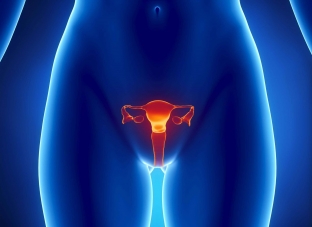As you know, gynecology is a medical branch dealing with women's health. When a patient contacts a specialist gynecologist, his main goal is not only the elimination of gynecological diseases and their prevention, but also & nbsp; improving the quality of life of a woman, as well as preparing her body for pregnancy and childbirth. A number of pathological conditions can affect all of these components, and among them the disease such as vaginismus deserves special attention. Today on estet-portal.com read about what kind of pathology it is, why it occurs, and what effective methods will help cure this disease.
Vaginismus: Causes and Treatments
Vaginismus – this is a fairly rare, but very serious gynecological pathology that develops in 2-3% of women.
The disease is characterized by a reflex spasm of the muscles of the vagina, as a result of which penetration into it becomes impossible.
There are two forms of vaginismus: precoital, characterized by the development of muscle spasm exclusively when attempting to have sexual intercourse, as well as generalized – reflex arising from the introduction of a tampon, touching the genitals, and so on, and in especially severe cases – even at the thought of sexual intercourse or a gynecological examination. In addition, vaginismus can be primary, that is, occurring even before the onset of sexual activity, and secondary, developing already after it started.
Vaginismus:
- The most common causes of vaginismus;
- clinical picture of vaginismus: symptoms of the disease;
- treatment of vaginismus: effective methods of therapy.
The most common causes of vaginismus
True vaginismus is believed to be psychogenic in nature. The disease is often associated with neurasthenia, hysteria and obsessive-compulsive disorder. At the same time, with neurasthenia, vaginismus is due to increased nervous excitability, and is provoked by an unconditional defensive reaction, and not by fear of sexual intimacy. Vaginismus in obsessive-compulsive disorder is associated with an obsessive fear of sexual intimacy or gynecological examination, which may be the result of a negative experience of sexual intimacy, the first attempt to insert a tampon, and so on. In hysteria, vaginismus is the result of the patient's conscious or unconscious reluctance to have sexual contact. The reason for this may be antipathy towards a sexual partner, previous violence, and so on. There are also pseudovaginismus that occurs in response to pain irritation
Clinical picture of vaginismus: symptoms of the diseaseThe clinical picture of vaginismus is quite characteristic, so it is possible to assume the correct diagnosis even on the basis of the obtained anamnestic data. The patient complains about the impossibility of sexual intercourse due to reflex spasm of the muscles of the vagina. At the same time, there are 3 degrees of severity of the disease:
- mild degree is characterized by spasm of the muscles of the vagina resulting from the introduction of the penis, fingers, gynecological instruments and so on into the vagina;
- with an average degree of muscle spasm occurs already in response to touching the genitals of a woman;
- severe vaginismus is characterized by spasm of the muscles of the vagina already at the thought of intimacy or
- gynecological examination.

Vaginismus is treated by gynecologists, sexologists, psychologists and psychotherapists. First of all, it is necessary to eliminate the etiological factor that provoked the development of pathology. Treatment of true vaginismus involves psychotherapy sessions, while appropriate medications can be prescribed, for example, antidepressants, muscle relaxants, and so on. If the patient has pseudovaginismus – first of all, it is necessary to cure the gynecological disease that provoked its development.
Botulinum therapy is very effective in the treatment of vaginismus.Injections of botulinum toxin into the muscles of the vagina help relieve spasm, and make sexual intercourse, and, accordingly, fertilization possible. estet-portal.com thanks you for your attention.
See also:
"Female frigidity, anorgasmia and vaginismus: causes of sexual dysfunction in women".







Add a comment